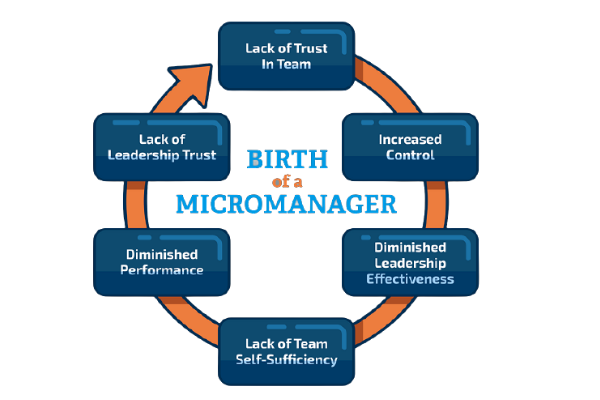

Founder Turnaround Talk
We have all heard stories about business tycoons who have founded massive multi billion dollar corporations. What we may not be aware of is how many times they failed before they succeeded. Donald Trump went bankrupt three times before founding his business empire. Richard Branson almost lost everything while founding Virgen and Gordan Ramsay lost three restaurants before establishing himself as one of the worlds foremost culinary entrepreneurs.
Sometimes, this happens through bad luck. Other times, it happens through sheer inexperience. I recently read an article about the five mistakes that a business owner can make that will break their business.
Over-promising and under-delivering
The article points out that a leader must shape the vision, plans and expectations and take the responsibility to deliver. As an entrepreneur it is important to set big goals for your employees, customers and investors, but it is important that these goals are realistic. Setting unrealistic expectations can create unnecessary stress for your team and destroy your reputation in the marketplace and in the eyes of your investors. Exceeding realistic expectations is much better than putting your foot in your mouth and destroying your reputation forever.
A clear example of this mistake was hydrogen truck manufacturer Nikola (NASDAQ:NKLA) and their now infamous “rolling a truck” downhill video which, when they found out, crashed their shares by more than 80% and destroyed their largest partnership. Another recent example was when Lordstown Motors (NASDAQ: RIDE) forged the order numbers to increase their value. The reputational damage of disappointing people is never worth a momentary, perceived benefit that can deliver too much.
Not having patience
The article adds that if you’re too impatient, you can make hasty decisions with dire long-term consequences. If you’re too patient, you’d probably have to work for a big company and not rush hard enough. Striking the right balance and executing real strategic planning can be very beneficial not only for your team and your overall personal well-being, but can also solve promising problems, especially when it comes to timelines.
Most entrepreneurs are optimists, which explains why we are continuously taking so much risk with a very small chance of success — half of startups fail within the first four years. Being impatient can lead to unnecessary and sometimes risky, “promising” shortcuts that can be just a band-aid in the long run.
“Planning fallacy” is a term used by psychologists to describe our tendency to underestimate the amount of time it takes to complete a task. In the book Think fast and slow, psychologist Daniel Kahneman argues that estimation errors occur due to two main factors:
– Not considering how long it took us to complete similar tasks in the past
– Assuming we don’t encounter any complications that cause delay
– Leaders usually have a vague estimate of how long a particular goal can take, but it’s important to realize that it will almost always take longer. Since most entrepreneurs have never completed many of the tasks they perform, it can be very helpful not only for you, but also for your team to give yourself breathing room and not get discouraged.

Photo By: Photo By: Sherpadesk
Micromanagement
The article points out that one sure fire way to have high employee turnover, low productivity, lack of creativity and absent communication is micromanagement. This mistake can stifle innovation and create resentment, leaving people feeling untrusted and unfulfilled. As a leader you don’t have to touch everything. You should instead focus on finding experts and empowering them to do their job according to your vision. If you float and have to say the last word every step of the way, you’re not helping. You are basically standing in the way, creating chaos and making more work for everyone.
It’s important for leaders to set boundaries when they notice their team is exhibiting this behavior and stop it before damage is done. An example of this mistake would be a CTO of a growth-stage company who deals with PR, SEO, and creating and approving marketing budgets rather than focusing on a product that provides value to customers.
The article adds that focused effort on individual responsibilities is very important and leaders need to walk the fine line between being hands-on and trusting their team. At the very beginning of a company’s journey, the entrepreneur fills almost every position. But as the business grows, the entrepreneur becomes the coach who makes sure everyone plays their part and performs at the highest level. This Gallup Guide of signs, causes and solutions can be a good start if you think you are making this mistake.
Not valuing your team’s contributions
There is nothing worse than being taken for granted and having your efforts not appreciated – except not being properly compensated for your efforts. Leaders who make this mistake need to think carefully about how to create an environment where people receive positive reinforcement and appropriate compensation.
The article points out that taking your team’s well-being, personal and career goals into account can lead to a situation where teams are extremely motivated to go beyond that. We all want to take pride in the work we do and when great achievements go undetected, resentment tends to derail progress. Leaders should praise and value their team’s contributions by highlighting and rewarding work well done, creating a positive work environment.
Sometimes paying your employees less can cost you more. Leaders must be willing to increase salaries for demanding positions to remain competitive in the race for top talent. Companies are competing for the most talented people and with remote work increasing, the talent show is global. Leaders who are unwilling to pay their employees competitive rates will see high employee turnover and low morale. Some studies predict that every time a company replaces a salaried worker, it takes an average of 6 to 9 months of wages. The hiring costs of advertising, interviews and screening combined with the onboarding costs of training and lost productivity can end up costing more in the long run.
The article adds that employees who are well rewarded and valued are motivated and loyal. Entrepreneurs who make the mistake of underselling talent and making money are not building the organization needed to compete at the highest level. There’s a reason the Lakers, Real Madrid and the Patriots dominate the sport — their ability to compensate. Even if you don’t have the money to compensate, use stocks, options, limited stock, bonuses and benefits to attract and retain your company’s superstars. This guide to compensation by Harvard Business Review offers some great insights into this all-too-important topic that cannot be ignored.

Photo By: Abbas Tehrani via Unsplash
Taking on too much
The article points out that, when a company tries to do too much too soon, they spread themselves too thin, overload resources and ultimately confuse their purpose. Being overwhelmed by the sheer volume of complex projects doesn’t create a healthy environment for employees, and it certainly isn’t healthy for the leader’s stress level and mental health. Overcommitment and handling multiple projects at once can be a big mistake for an early stage startup. Determining the optimal number of projects the company should pursue and prioritizing them based on ROI should be a top strategic priority for leaders.
The article adds that an example of this error is a biotech company that is working on new therapies, opening a clinic network and also launching a supplement line. This three-pronged approach can confuse investors and divert attention from the highest ROI opportunity – the development of the new drug treatment. As a leader, you need to make sure the job gets done without compromising the quality and reputation of your company. Sometimes less is more and entrepreneurs need to realize that trying to be everything to all people is a mistake. That usually leads to disappointment for everyone, including yourself.
The role of BRPs
BRPs have seen it all and have gotten a few t shirts along the way. They may have come across companies that have fallen into some, if not all of these mistakes and have paid the price.
Business rescue is along game where patience is a key element of success. BRPs need to encourage distressed business owners to approach the rescue with the same level of objectivity and unemotional attachments, that BRPs display. This will go a long way in ensuring that business rescues have a chance of survival.




